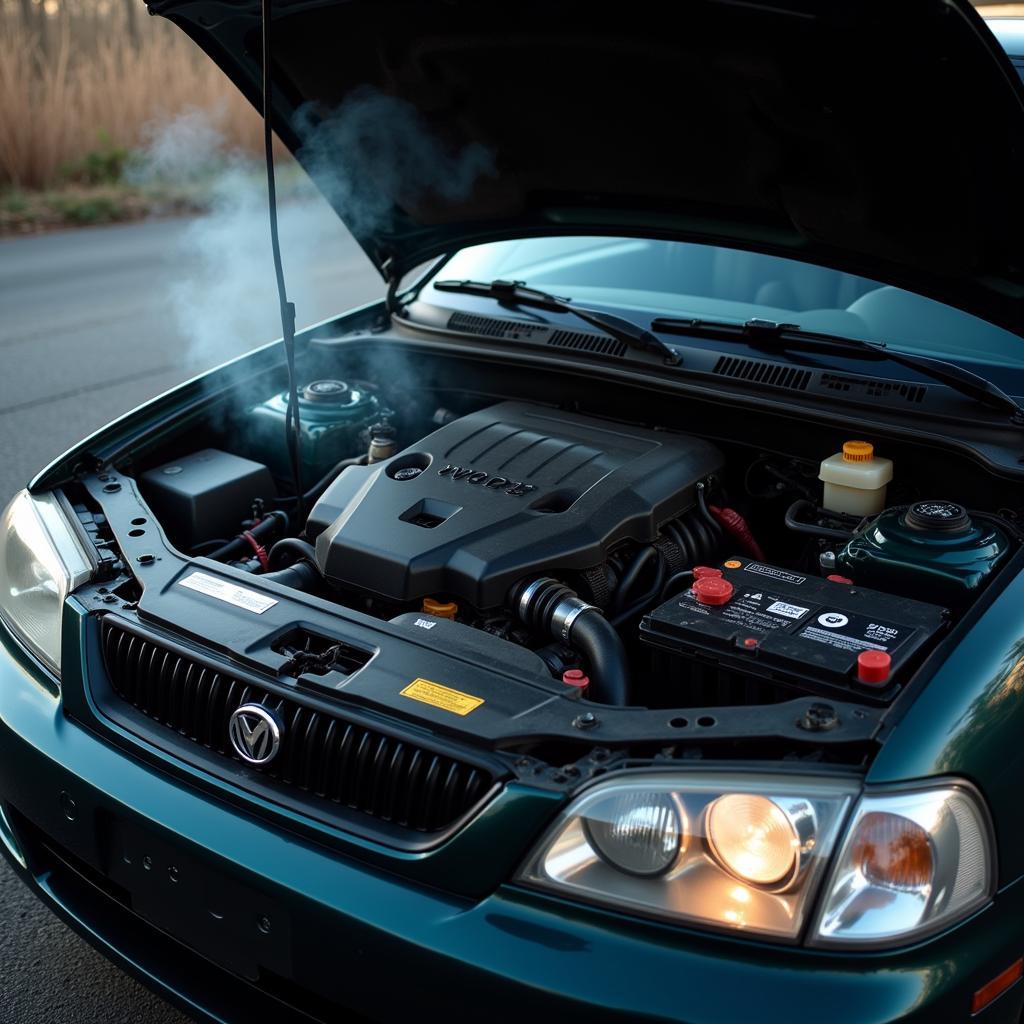A dead battery or a failing alternator can leave you stranded. Knowing the signs of a bad alternator vs bad battery is crucial for diagnosing car trouble and avoiding unexpected breakdowns. This guide provides a detailed comparison to help you pinpoint the source of your vehicle’s electrical issues.
 Bad Alternator Symptoms
Bad Alternator Symptoms
Identifying a Failing Alternator
Alternators are the heart of your car’s electrical system, recharging the battery and powering electrical components. Several telltale signs indicate a failing alternator.
- Dim or flickering headlights: A failing alternator struggles to provide sufficient power, resulting in dim or flickering headlights, especially at idle.
- Dashboard warning light: The battery or charging system warning light is often the first indicator of an alternator issue.
- Strange noises: Whining or growling sounds from the engine compartment can indicate worn alternator bearings.
- Electrical issues: Problems with power windows, radio, or other electrical accessories can suggest a failing alternator.
- Burning smell: An overheating alternator can produce a distinct burning smell due to excessive strain.
Testing Your Alternator
A multimeter can help confirm alternator problems. Measure the battery voltage with the engine off, then running. signs of a bad battery vs alternator can help you interpret the readings. A voltage drop while the engine is running suggests a failing alternator.
Recognizing a Bad Battery
While an alternator generates power, the battery stores it, providing the initial power to start the engine. A bad battery presents different symptoms.
- Slow engine crank: A sluggish or struggling engine crank is a common sign of a weak or dying battery.
- Clicking sound when starting: A rapid clicking noise when you turn the key indicates insufficient battery power to engage the starter motor.
- Interior lights dim: Dim interior lights, especially when starting the car, suggest a weak battery.
- Swollen battery case: Extreme temperatures can cause a battery case to swell, indicating internal damage.
- Old age: Batteries have a limited lifespan, typically 3-5 years. An old battery is more prone to failure.
Testing Your Battery
Similar to testing the alternator, a multimeter can be used to check your battery’s voltage. signs of bad battery vs alternator provide guidance on voltage readings. A voltage significantly lower than 12.6 volts with the engine off points to a weak battery.
Distinguishing Between Alternator and Battery Issues
Sometimes, the symptoms overlap, making it tricky to differentiate between a bad alternator and a bad battery. If you experience car battery losing charge fast, it could be either component. Similarly, if you have a new car battery keeps going flat, it might point to a failing alternator that isn’t charging the new battery properly. One helpful scenario to consider is if you’ve changed battery and car still wont start. This is a strong indicator of a deeper issue, possibly with the alternator or starter.
Jump Starting Your Car: A Temporary Fix
If your car won’t start due to a dead battery, jump-starting can get you going temporarily. However, if the problem is a bad alternator, the car will likely die again shortly after removing the jumper cables.
Conclusion
Understanding the signs of a bad alternator vs bad battery is essential for every car owner. Recognizing these symptoms can help you diagnose the issue accurately, avoid costly repairs, and prevent being stranded. Regular maintenance and prompt attention to warning signs can keep your car’s electrical system running smoothly.
FAQ
- How long does an alternator typically last? Alternators typically last between 7 and 10 years, but lifespan varies depending on usage and vehicle conditions.
- Can a bad alternator drain a good battery? Yes, a failing alternator won’t recharge the battery, eventually leading to a complete drain.
- How much does it cost to replace an alternator? Alternator replacement costs vary, but expect to pay between $300 and $700, including parts and labor.
- Can I drive with a bad alternator? You can drive a short distance with a failing alternator, but it’s not recommended as it can damage other electrical components.
- How can I prevent alternator problems? Regular vehicle maintenance, including battery and alternator checks, is the best way to prevent problems.
- Can I test my alternator myself? Yes, you can test your alternator using a multimeter, but if you’re unsure, it’s always best to consult a qualified mechanic.
- What should I do if my car won’t start? Check the battery and alternator, consider jump-starting if the battery is dead, and if the problem persists, seek professional assistance.

